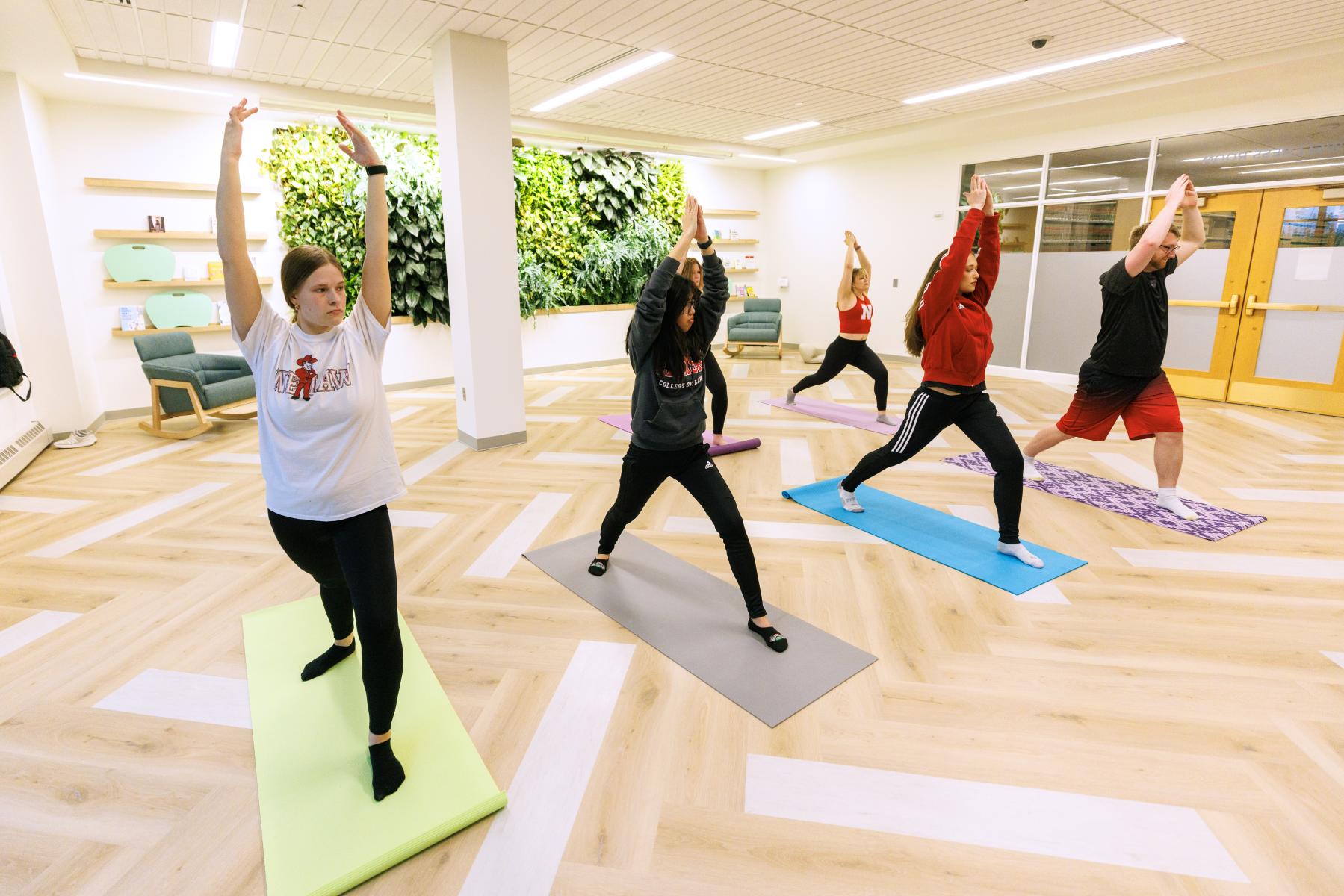
Throughout the College of Law, efforts are expanding to make well-being an integral part of the school’s culture. Law students are often expected to juggle academics, extracurriculars, professional development, and physical and mental wellness all at once. To lighten that burden, faculty, staff and administrators are working to provide tools and education on wellness practices. The hope is to develop healthy habits and prepare students for life after law school.
Assistant dean for student development and chief of staff Molly Brummond emphasized the importance of well-being in the legal field, as the profession has relatively high rates of alcoholism and addiction. According to the American Bar Association, as many as one in five lawyers experience alcohol use disorders.
“We have to do something differently at this stage so they know how to deal with the stress that comes with the profession,” Brummond said. “We’re really working hard to make wellness and well-being a part of the environment at the College of Law.”
Nebraska Law students now have access to a number of well-being resources, such as the recreation center on East Campus, Counseling and Psychological Services (CAPS), and Big Red Resilience and Well-being.
These initiatives provide a variety of options to students. The Wellness Room, located in the library, hosts weekly meditation and yoga sessions. It provides a place of respite, relaxation and quiet in the building. Each week, the College of Law communications team distributes a Wellness Digest, filled with tips, articles and campus events focused on well-being. Twice a year, the Mental Health Committee organizes a Mental Health and Wellness week filled with campus walks, workshops and self-care activities.
Additionally, the Nebraska Lawyers Assistance Program (NLAP) holds regular office hours at the College of Law. This resource is free and confidential, providing law students with an opportunity to discuss any issues they may be facing, including stress, anxiety, depression, substance use disorders and any other concerns they may have.
This semester, every student also has the opportunity to access a free subscription to Headspace, an app that provides guided meditations, sleep podcasts and daily inspiration. “So much of law school is about just keeping your head above water and pretending to swim,” said Emma Schlenker, ’24, a Headspace user. “Spending consistent time to take care of my brain as it works so hard to learn and be a law student has made all the difference in my quality of life.”